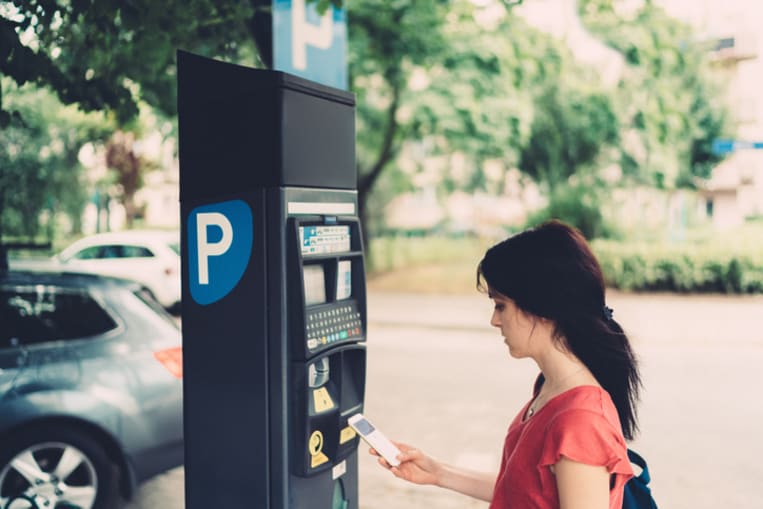
BBB Scam Alert: Double check that QR code before you pay for parking

(Getty Images )
QR codes are everywhere: signs, ads, menus, and even scams. BBB Scam Tracker has reports about a scam that involves fraudulent QR codes at parking lots, and the FTC has reported on this type of QR fraud as well. This time, scammers use them to steal parking fees and collect credit card information. It's the flip side of this parking ticket scam. Learn how the scam works to avoid falling victim.
How the scam works
You pull up to a city parking meter, a parking sign, or a parking voucher machine and notice a prominently placed QR code. It may say “Pay for Parking Here” or have a similar message. Happy about the convenient payment method; you scan the code and pay using your email address and credit card number. You don’t receive proof of parking, but you may notice an amount charged to your credit card. You assume that you’ve been charged for parking.
A few weeks later, however, you noticed another charge on your credit card. However, this fee has nothing to do with parking. It’s a recurring charge from an unrelated company posing as the city’s parking fee service. In other scenarios, you may have even unknowingly signed up for an entertainment streaming service. It turns out the QR code was fake, and your information is now in the hands of a scammer.
One consumer shared their experience with BBB Scam Tracker, "QR code in a parking lot in a church was intended to pay for parking. I entered my info into the website thinking I was entering payment info for a parking app, but it was for some digital membership service. I immediately recognized my error and called to place a hold on my credit card and to cancel that credit card number to avoid recurrent charges. The hold for the charge was not successful - it has been processed for $39.99."
In another example, someone shared, "There was a sign by the parking spot asking us to pay with credit card. We followed the instructions to provide our credit card info and expected to pay a few dollars. Our credit card company texted us immediately asking us to confirm a charge of around $49.99. Of course we declined the charge, and we left the place. Few days later, the company tried to charge us again...I was told that we signed up for some kind of streaming service."
How to avoid impostor QR scams
- Pay for parking directly through the meter. Instead of scanning QR codes to pay for parking, use your credit card to pay directly using the machine or meter.
- Watch out for short links. If a QR code says it will open a URL-shortened link, you can’t know for sure where the code is directing you. It could be hiding a malicious URL or not belonging to the organization you are trying to pay.
- Take a good look at the website before paying. Before providing payment, check the website for signs of a scam. Look at the URL, look for spelling or grammar errors, and blurry images or logos.
- Look for evidence of tampering. Scammers may try to confuse you by placing QR code stickers where they should not belong. They may even place them on top of legitimate QR codes. Keep a close eye out for signs of tampering.
- Install a QR scanner with added protection. Antivirus companies may offer QR scanner apps that alert you to phishing scams, suspicious links, and forced app downloads before you click on the link. Take advantage of secure scanners to get extra protection.
For more information
Read up on other scams that involve fraudulent QR codes and review BBB’s study on government impostor scams.
For general tips on avoiding scams, visit BBB.org/AvoidScams.
If you spot a scam, whether you lose money or not, report it to BBB.org/ScamTracker. Your report can help other consumers avoid falling victim to similar scams.
Still Need Assistance?
Contact Your Local BBB
Your local Better Business Bureau can assist you with finding businesses you can trust. Start With Trust®.
Additional Resources
Let BBB help you resolve problems with a business
Research and report on scams and fraud using BBB Scam Tracker
Learn more about the value of BBB Accreditation